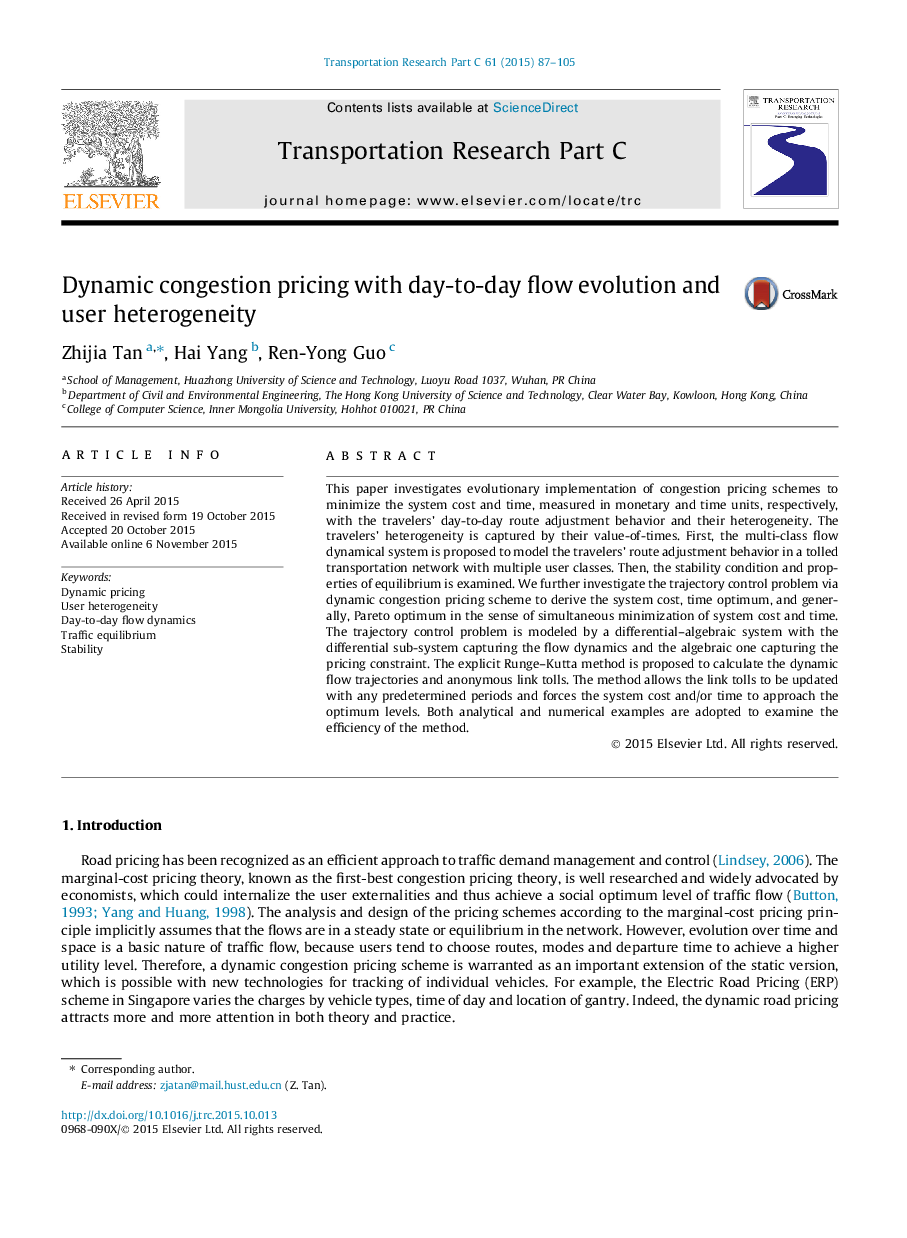| Article ID | Journal | Published Year | Pages | File Type |
|---|---|---|---|---|
| 526357 | Transportation Research Part C: Emerging Technologies | 2015 | 19 Pages |
•Proposed a dynamical system in a tolled transportation network with heterogeneous users.•Examined the equilibrium properties of the dynamical system.•Investigated the dynamic congestion pricing schemes.•Proposed a discrete-time toll updating scheme by using the implicit Runge–Kutta method.
This paper investigates evolutionary implementation of congestion pricing schemes to minimize the system cost and time, measured in monetary and time units, respectively, with the travelers’ day-to-day route adjustment behavior and their heterogeneity. The travelers’ heterogeneity is captured by their value-of-times. First, the multi-class flow dynamical system is proposed to model the travelers’ route adjustment behavior in a tolled transportation network with multiple user classes. Then, the stability condition and properties of equilibrium is examined. We further investigate the trajectory control problem via dynamic congestion pricing scheme to derive the system cost, time optimum, and generally, Pareto optimum in the sense of simultaneous minimization of system cost and time. The trajectory control problem is modeled by a differential–algebraic system with the differential sub-system capturing the flow dynamics and the algebraic one capturing the pricing constraint. The explicit Runge–Kutta method is proposed to calculate the dynamic flow trajectories and anonymous link tolls. The method allows the link tolls to be updated with any predetermined periods and forces the system cost and/or time to approach the optimum levels. Both analytical and numerical examples are adopted to examine the efficiency of the method.
